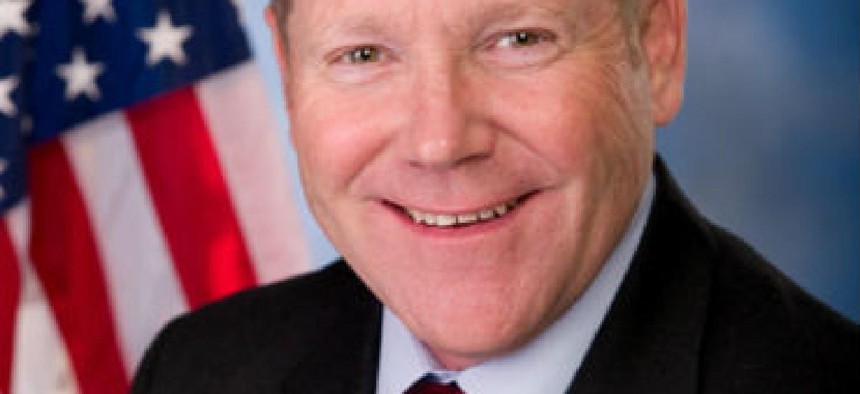Should Congress budget on a two-year cycle?

A biennial budget bill is being pushed in Congress, but many lawmakers and industry experts are skeptical of a two-year cycle for appropriations.

Rep. Reid Ribble (R-Wis.) has introduced legislation that would move the government to a two-year budget cycle; the bill has more than 200 cosponsors in the House.
For years, a few lawmakers have sought to shift Congress to a two-year budget and appropriations cycle to avoid the shutdown threats that are seemingly annual occurrences. But other lawmakers, experts and industry insiders are skeptical that such an approach would help agencies with acquisition and planning or ever be put to a vote.
Rep. Reid Ribble (R-Wis.) testified before the House Rules Committee's Legislative and Budget Process Subcommittee on Jan. 6 on behalf of his Biennial Budgeting and Enhanced Oversight Act of 2015. In addition to budget and appropriations bills, the legislation would move strategic and performance plans to a two-year cycle.
"Having a budget for two years will reduce the frequent need for continuing, stopgap resolutions," Ribble said. The bill has 231 cosponsors -- 179 Republicans and 52 Democrats. He stressed that the goal behind the bipartisan bill is "an idea whose time has come."
However, Rep. David Price (D-N.C.) argued that the bill would do more harm than good and weaken transparency and the overall budget process. "The heart of the matter is the annual appropriations, which would not work at biennial budgeting," he said.
Some industry experts agree. Mike Hettinger, managing principal at Hettinger Strategy Group and a Capitol Hill veteran, told FCW he would be surprised if the bill makes it through the legislative process. Although it has some benefits, it does not eliminate the uncertainty factor for agencies, he added, noting that the bill could be good for IT infrastructure development but might not be the best approach.
"The more flexibility and ability to spend money when you need it and not necessarily in a budget year -- that's generally better for planning purposes," Hettinger said.
Trey Hodgkins, senior vice president at the IT Alliance for Public Sector, told FCW that IT infrastructure, cybersecurity, digital capabilities, cloud computing, web services and digitized constituent services are issues that need to be re-evaluated under the current appropriations cycle and given more spending flexibility.
"Frankly, we are using an appropriations process that's rooted somewhere between the horse-and-buggy era and the Industrial Age," Hodgkins said. "Until we change the dynamics on how we fund IT investments, we are going to continue" to experience failures like the data breach at the Office of Personnel Management.
"Part of the challenge with the budgeting cycle today is that we don't have a lot of relevant information on which to make budget decisions," Hettinger told FCW. "And I think going to a two-year budget, you are potentially almost budgeting too far in advance."
Molly Reynolds, a fellow in governance studies at the Brookings Institution, said some argue that agencies might feel more limited if the budget is set for two years and something happens in between. At the same time, agencies would get some breathing room from shutdown threats and continuing resolutions. But appropriators would lose their annual power over budgets.
"We would be asking them to give up some of their power if we went from appropriating every two years from appropriating every year," Reynolds said.
More hearings and a markup are expected on the bill this year.
NEXT STORY: Navy Interested in Swimming Drones


